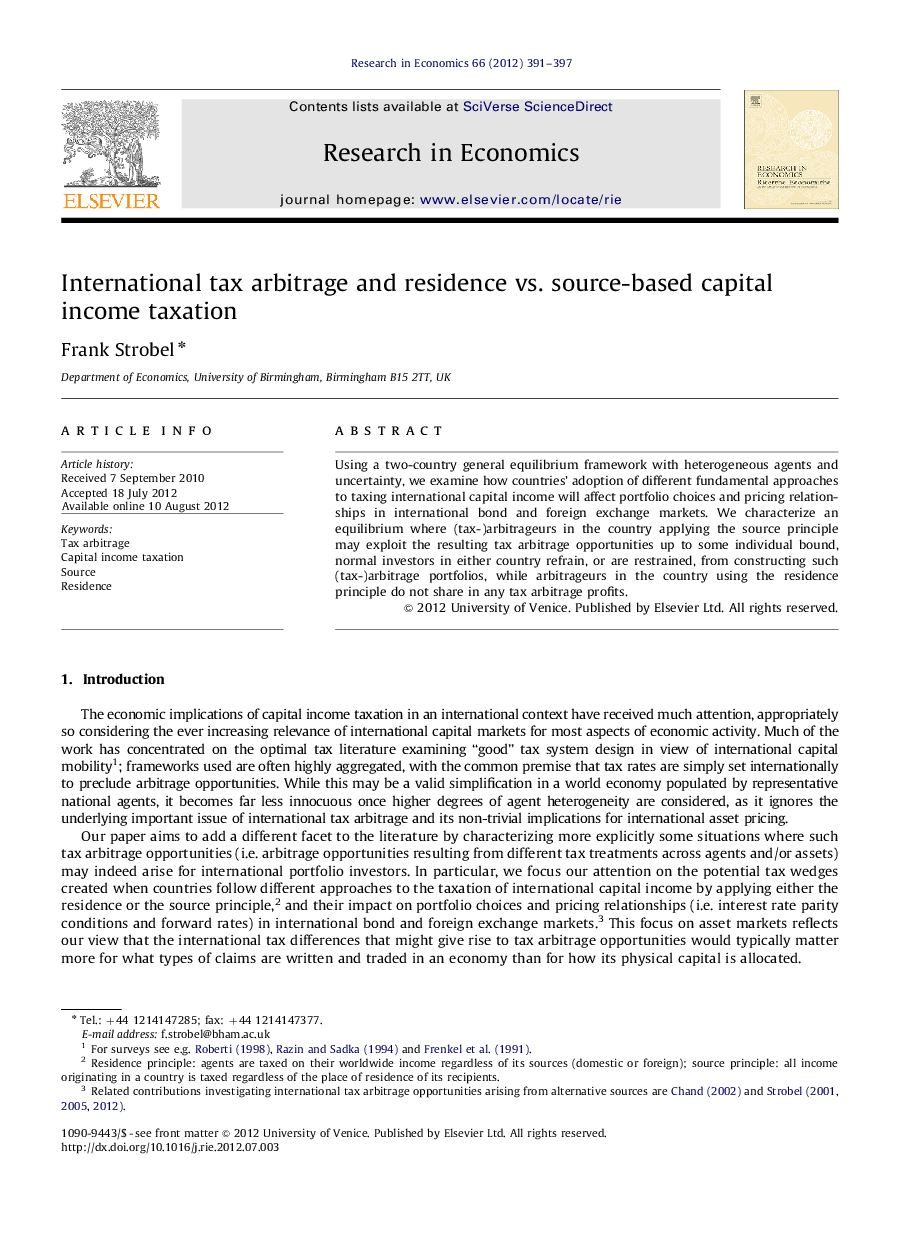| Article ID | Journal | Published Year | Pages | File Type |
|---|---|---|---|---|
| 984346 | Research in Economics | 2012 | 7 Pages |
Using a two-country general equilibrium framework with heterogeneous agents and uncertainty, we examine how countries' adoption of different fundamental approaches to taxing international capital income will affect portfolio choices and pricing relationships in international bond and foreign exchange markets. We characterize an equilibrium where (tax-)arbitrageurs in the country applying the source principle may exploit the resulting tax arbitrage opportunities up to some individual bound, normal investors in either country refrain, or are restrained, from constructing such (tax-)arbitrage portfolios, while arbitrageurs in the country using the residence principle do not share in any tax arbitrage profits.
► Use general equilibrium framework with heterogeneous agents and uncertainty. ► Examine implications of different approaches to taxing international capital income. ► Characterize non-trivial equilibrium with arbitrageurs, tax-arbitrageurs and investors. ► Standard (no-tax) interest rate parity condition goes through unchanged.
